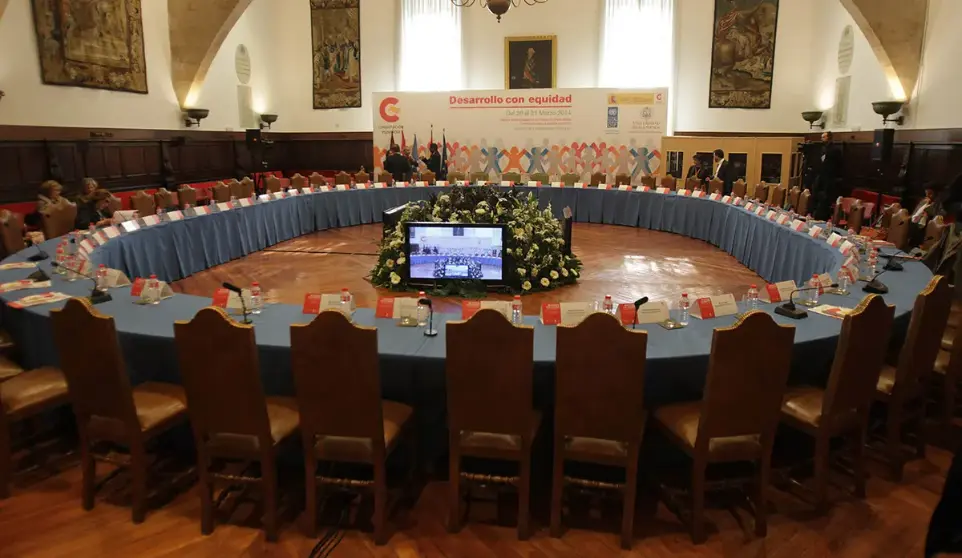A Unique Approach to Management and Negotiation
The Master in Global and International Studies with emphasis in Global Business and Negotiation focuses on management within organizations and negotiation among organizations, especially international business organizations. A mix of academics and practitioners offers the best possible training for this kind of professional.
All organizations must operate within the context of relative scarcity. Obtaining and managing the financial resources required to operate in this context is a critical component of managing any organization effectively. With its focus on negotiation, critical thinking, global security, public opinion, migration, and globalization theory, this degree evidences its first significant departure from the traditional MBA program and in so doing provides a clear emphasis on management as opposed to mere business administration
The Growing Demand for Global Business and Negotiation Skills
With its focus on preparing students to negotiate effectively in an increasingly larger global system where negotiators need to accomplish their goals by being able to take into account cultural, religious, and educational differences that shape different business contexts, our Master in Global and International Studies with emphasis in Global Business and Negotiation marks its most significant distinction from traditional MBA programs. Within and between modern organizations negotiation is a constant.
Why should you have a Master’s degree that targets Global Business and Negotiation? In April 2013, Hart Associates published a study based on a survey of 318 employers having 25 or more employees. The research by Hart was conducted on behalf of the Association of American Colleges and Universities and the findings were striking. To quote from the study, “Nearly all employers surveyed (95%) say they give hiring preference to college graduates with skills that will enable them to contribute to innovation in the workplace.”
Additionally, “Nearly all those surveyed (93%) agreed that a candidate’s demonstrated capacity to think critically, communicate clearly, and solve complex problems is more important than their undergraduate major.” These trends are even more poignant today. In light of these findings, it is amazing that comparatively few traditional MBA programs have any kind of systematic approach for instilling critical thinking skills in their graduates.
Career Opportunities and Practical Applications
Our Global Business and Negotiation track has structured its entire curriculum around the idea that business is necessarily cross-border business. This program is explicitly designed to train future managers/negotiators for a range of organizations, whether those organizations are multi-national firms, the military, government, or not-for-profit international organizations. Training only “for-profit” managers runs the serious risk that the “for-profit” aspects are so over-emphasized that non-profitability considerations will be drowned out. This can be detrimental not only for the potential not-for-profit student, but also for those aiming at careers in for-profit organizations as well, since profit, though obviously important, should never be a manager’s sole consideration. Additionally, those students aiming at careers with not-for-profit organizations may quickly come to feel like “second rate” participants in traditional MBA programs.
This track also offers the opportunity of global internships. (See our Global Internship Program) in the chosen area of work. For students that choose to take our Global Internship Program, representatives of firms and/or internship places will be part of the process
.





